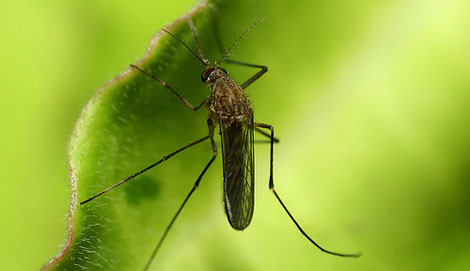
Image by flickr user gyuvallosImage by 20080623mosquito.jpg If you don't want this guy sneaking up on you in the dark, you'd do well to pay attention to some of Charleston County Mosquito Control's tips for keeping mosquitoes from breeding around you.
It's that time of year again. You know what we mean. The mosquitoes are starting to return, and you start finding bites all over your legs and arms. (This editor even found one on his forehead this morning ... Yeah, it sucks.)
Well, ABC News 4 has put out a short guide on trying to stop the little nuisances from ruining your summer:
"People don't realize it but mosquitoes will breed in the buckets, flower pots and dog bowls," said Randy Miller, supervisor with Charleston County Mosquito Control.
The insects typically take about five days to fully mature. So far this year has been relatively low for the number of mosquitoes flying around because of the dry weather.
"After this rain as we keep going on and on, mosquitoes, they're going to be breeding and you'll see more around," Miller said.
Some of the tips published by News 4, and provided by Charleston County Mosquito Control, are:
- Keep lawn and garden equipment inside.
- Fix leaky faucets.
- Fill in tree holes with sand or concrete.
- Change pet water regularly; chlorinate pools.
- Add fish that eat larvae to ponds.
Also, this week is Mosquito Awareness Week, as Charleston County reports in a press release. Each year, Mosquito Control uses the awareness week to help educate the public on mosquitoes:
During Mosquito Week, Charleston County staff will distribute brochures that will be available at the five main County libraries, and at James Island County Park, Palmetto Islands County Park, and Wannamaker County Park.
In an effort to reach out and educate people, inspectors will also hand out information packets to citizens at residences requesting mosquito control services.
"The information packet program gives us an excellent opportunity to talk with people in person and answer their questions and concerns," said Ed Harne, a taxonomist with Charleston County Mosquito Control. "We will give people information on the mosquito life cycle and tips on how to eliminate mosquito egg-laying sites around their homes in order to help reduce the number of mosquitoes in their neighborhoods."
We can all do ourselves, and our neighbors, a favor and make sure there's no standing water around for mosquitoes to breed in. I think everyone can agree that any steps to avoid the irritation of mosquitoes are good ones ...



That's what an anti-mosquito campaign should look like. In many areas on the planet mosquitoes don't aren't even repelled through any form of program, this could explain why some areas register various infection zones. This pest control in Orlando resource provides informational support on how to stay safe against pests, our health and well-being depends on it.